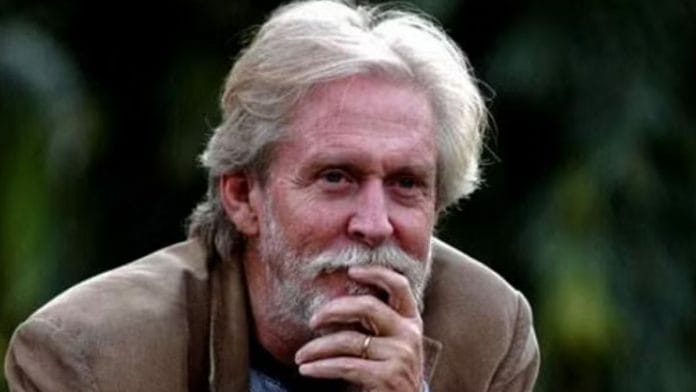Thomas Beach Alter had lofty dreams.
“I came to Bombay to become Rajesh Khanna. I didn’t come to act on stage,” he told Hindustan Times in 2017, the year of his death. Alter didn’t quite become Khanna, but ended up being an inescapable presence on the silver screen.
The blue-eyed, blonde-haired artiste acted for over four decades––that too in an industry that isn’t known for being welcoming to outsiders. He was fluent in Hindi and Urdu and was part of over 300 films, television shows and plays.
Alter remains an indelible figure in the Hindi entertainment industry, but as the unassuming sidekick.
The man who ‘played it all’
Born on 22 June 1950 in Mussoorie, Uttarakhand, Alter’s parents were American Presbyterian missionaries. He and his sister formed the third generation of Alters in India; his grandparents had been missionaries too.
He attended Mussoorie’s Woodstock School and spent a year-and-a-half at Yale University before returning to India and enrolling at the prestigious Film and Television Institute (FTII) in Pune. He graduated and moved to Mumbai, the pulsating heart of the Hindi film industry.
Alter did more than just fill the recess in Bollywood; he revelled in it. Caucasian characters, especially during the post-Independence decades, were a common plot point in most productions. They were the police superintendents, British officers, Raj-era government servants, doctors, as well as the generic White characters – and Alter dabbled in them all.
This was, of course, outside of his work in television and theatre. Alter was on Junoon (1994-1998), one of Doordarshan’s longest-running prime-time shows, and fought against being typecast. He was a multifaceted actor and played Maulana Azad in a theatre production that ran for 11 years.
Alter was remarkably comfortable in Urdu and Hindi. The script of Maulana Azad was in Devnagari, and Alter is said to have insisted on reading its Urdu avatar. Owing to his appearance, his prowess in both languages attracted curiosity, which often infuriated the actor.
“I have been telling people that I was born in this country. Why are you so surprised if I speak good Hindi? When you guys speak in Hindi, do I look surprised?” he is known to have said.
It was Alter’s love affair with Urdu that led him to pursue a career in film. He was taught by a man named Muhammad Rafiq, to whom he would cycle three times a week for language lessons.
“He broke the typical mould of a foreigner in India with his interest in and understanding of the culture and languages, both Hindi and Urdu. He was a cultural ambassador,” said film critic and music expert Pavan Jha.
One of Alter’s early hits was Satyajit Ray’s 1977 film Shatranj ke Khilari, where he played Captain Weston: a British captain smitten with Urdu. Veer Zaara (2004), the India-Pakistan romance drama starring Preity Zinta and Shahrukh Khan, had a certain Doctor Yusuf, played by none other than Alter. So there he was, a punctuation point in historic films that defined what India had to offer –– vital, even if not given due credit by his audience.
Alter continued to work at full throttle, even after being diagnosed with skin cancer, to which he ultimately succumbed.
“All is well,” he told Hindustan Times’ Henna Rakheja in 2017, adding that 20 of his films were “ready to release”. He died on 29 September at his home in Mumbai. He was 67.
In 1989, The New York Times asked Alter about the métier he had come to occupy. “You know it, I’ve played them all.” He didn’t stop at that and instead grinned: “I haven’t been a hero yet.”
(Edited by Zoya Bhatti)






